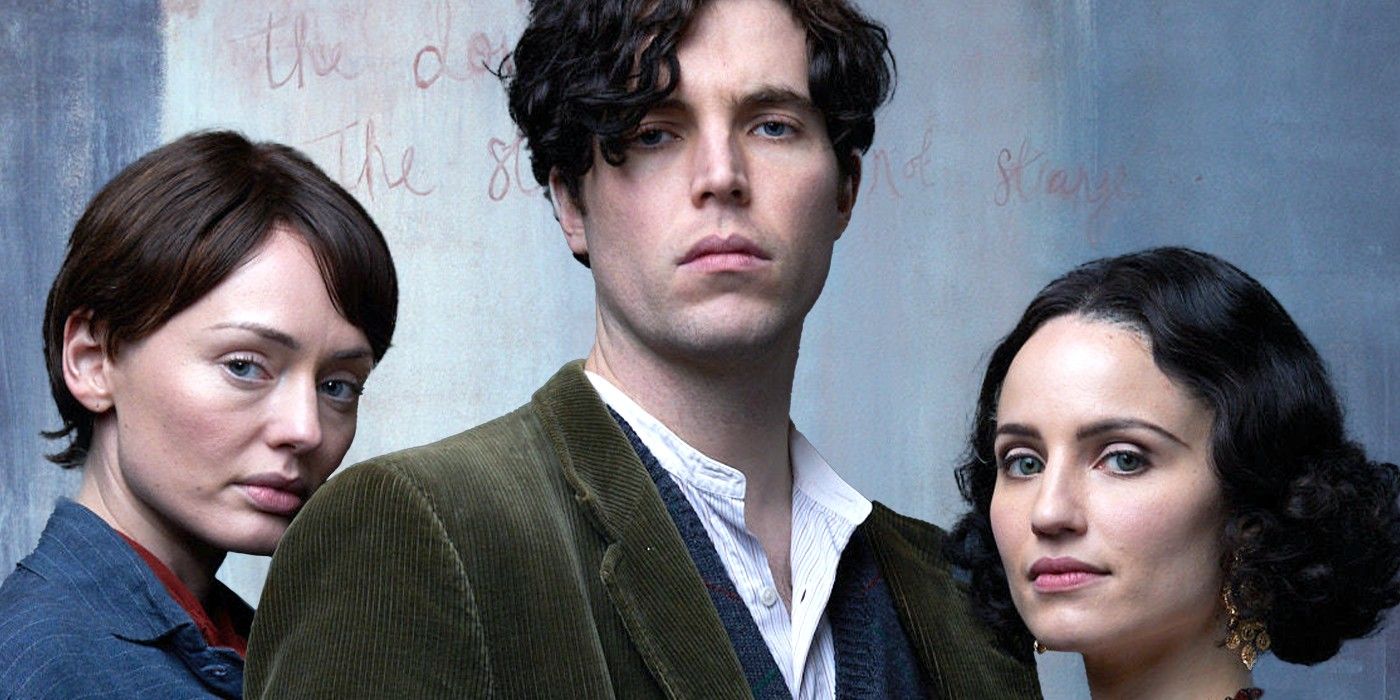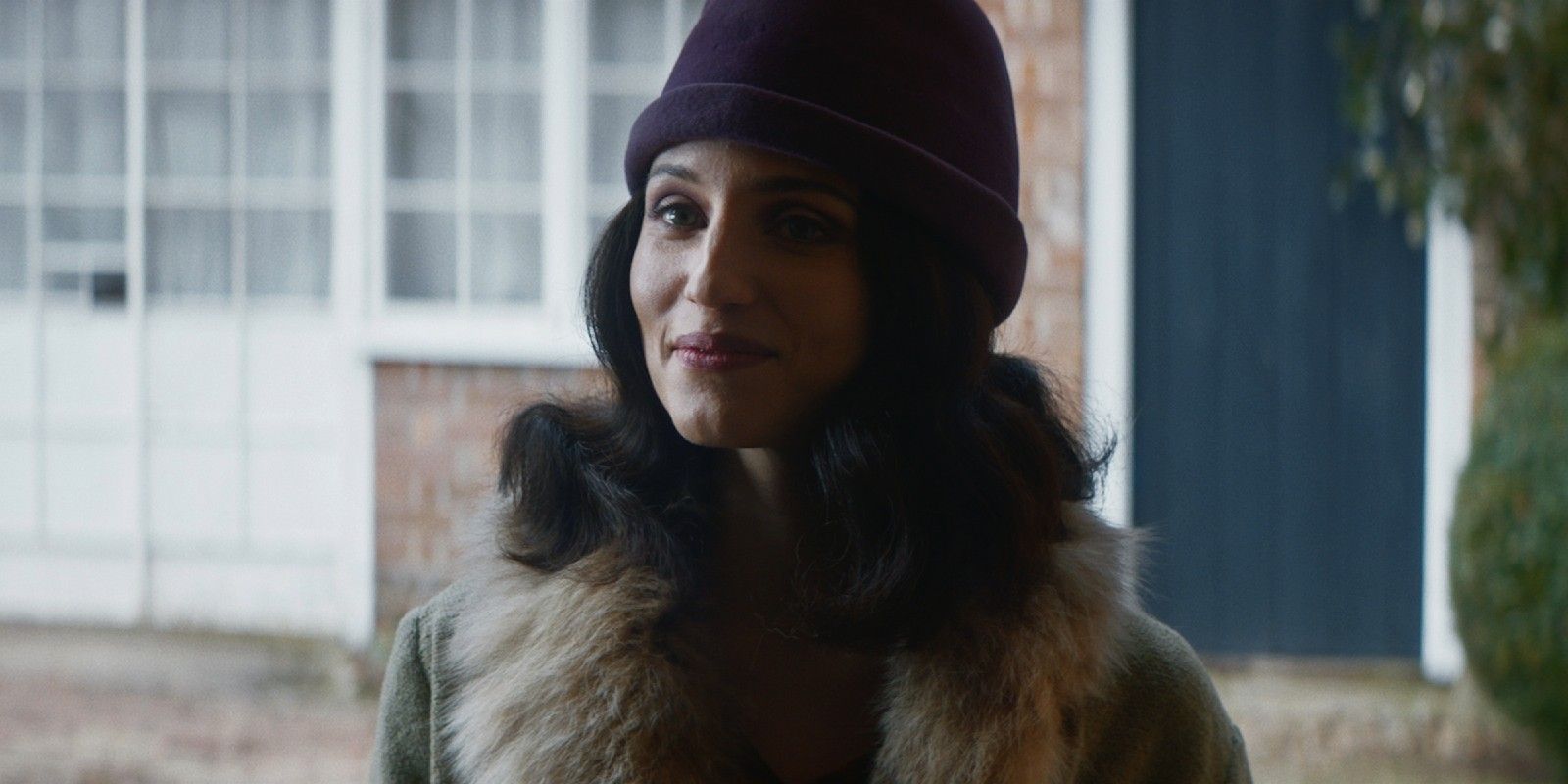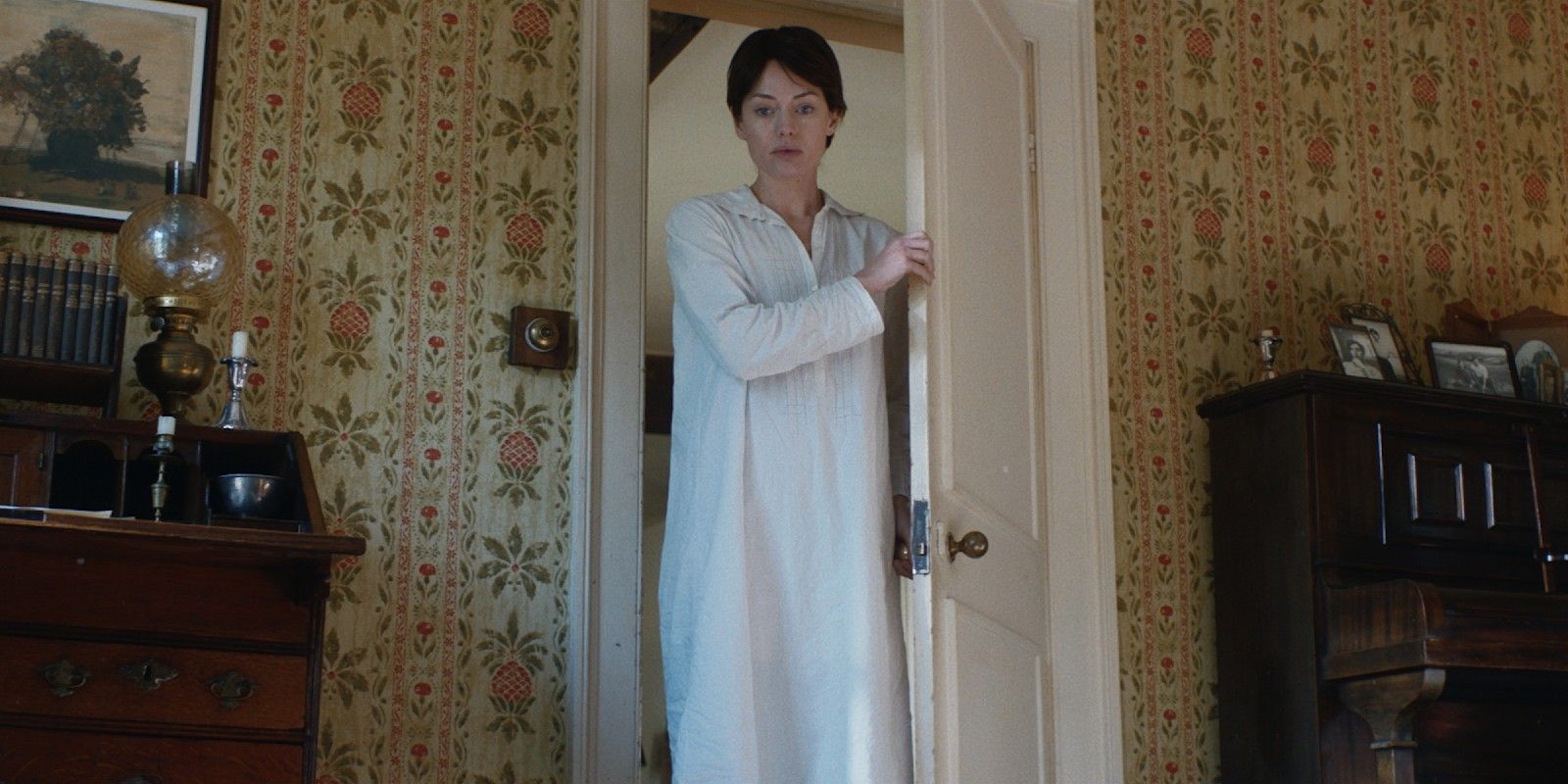Though The Laureate, from first-time feature director William Nunez, is about real-life novelist and poet Robert Graves, the movie itself is far from a traditional biopic. Told through a dreamy haze as the central characters occasionally reflect on all that transpires throughout the film, The Laureate unspools its story with a haunting quality that suits its subject matter rather well. Nunez, who also wrote the screenplay, handles the balance between reality and dream (or perhaps nightmare) capably, though the film does struggle to properly service all of its characters. Ultimately, The Laureate pushes past the tone and format of a typical biopic to make something fresh, though it holds weak spots in an otherwise compelling story.
The Laureate opens with a startling image: Robert Graves (Tom Hughes) lies on the pavement beneath an open window, blood trickling from his nose. There's only a quick glimpse of a woman lying beside him before the action shifts back to 1928, when Robert is struggling to jot a single word down. Tortured by the PTSD he developed during World War I, he catches the first glimpse of inspiration after reading a piece by radical American writer Laura Riding (Dianna Agron). Robert is soon urged by his understanding and liberal wife Nancy Nicholson (Laura Haddock) to invite Laura to their home; upon her arrival, Laura charms and seduces both Robert and Nancy. However, as they become increasingly entangled with her, something more sinister emerges.
The Laureate explores the twisting relationships between Robert, Laura, and Nancy, a trio that later grows to a quartet with the introduction of aspiring poet Geoffrey Phibbs (a sweetly earnest Fra Fee). Before that, though, the film spends the first half of its runtime building the intricate dynamic between the main three characters. Nancy's initial support of Robert's faltering creative pursuits stirs up some confusion, as Nunez's script doesn't provide much depth to those early actions. However, it is clear why she isn't threatened by Laura's arrival: She's just as entranced as Robert is. Nunez directs The Laureate's early scenes with an intimacy that is nearly palpable, allowing for quiet, loaded moments with Laura and the others. He's aided by editor David Massachi and cinematographer Adam Barnett; together, their two elements paint a captivating picture of the ménage à trois. It helps that Hughes, Haddock, and Agron all have solid chemistry.
It's when The Laureate shifts the action to London as Robert gets the opportunity to write a colleague's biography that the cracks in the dreamy tale begin to show. Robert and Laura settle down in a bohemian flat and pull Geoffrey into their orbit, leaving Nancy at World's End with her and Robert's daughter. Laura's more domineering side comes out, and Agron plays her shifting emotions quite well. Laura is both taken with Geoffrey and consumed with her apparent brilliance, yet also grows increasingly dissatisfied with the lack of respect she receives just because she is a woman. What undercuts some of Laura's more heightened emotions in the second half of The Laureate is that, aside from a jarring and unsettling scene from earlier at World's End, there is little hint of them up until that point.
This is ultimately how The Laureate falters somewhat. Though armed with compelling dynamics that are grounded in real life, Nunez's script doesn't always dig meaningfully into the characters. Robert perhaps emerges as the clearest drawn personality thanks to the tragic war flashbacks he suffers and his poetic voiceover that occasionally interjects to offer retrospective observations. However, if Robert gets the best deal, Nancy suffers the most. Though she, too, contributes to the voiceover, it feels like there is much of her that remains a mystery. Luckily, Haddock gives the strongest performance of the key quartet. With just a few looks, she perfectly conveys Nancy's uncertainty, desire, and heartbreak as she watches the devastation Laura wreaks on those around her.
Despite the occasionally weaker characterization, The Laureate offers a fittingly dramatic take on a real author and the women who made up his life. Nunez gives the story a dream-like quality that enlivens the material, and the performers mesh well together. One just wishes each character was treated equally — just as they like to pretend they are in the film. Still, The Laureate has plenty to offer, particularly if one enjoys literary-minded period pieces and complex relationships.
The Laureate releases in theaters and on demand today, January 21. It is 110 minutes long and rated R for sexual content, nudity, and language.



